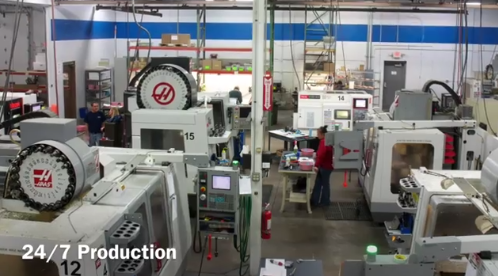While one type of technology is ideal for completing short runs quickly and inexpensively, the other creates prototypes that are nearly exact replicas of final products. Both of these technologies have changed the way parts are machined in almost every industry.
Fused deposition modeling, or FDM, and computer numerical control machining, or CNC, have both made the process of machining prototypes quicker, easier and more efficient. But deciding on which method to use for your project depends on what your prototype and finished product is going to accomplish.
FDM
Fused deposition modeling is sometimes called 3D printing. Like CNC machining, it starts with a computer drawing of the prototype, which is then downloaded into a software that separates the image into thin slices. Afterwards, the file is entered into the FDM machining equipment and melted thermoplastic is formed into each “slice” of the schematic.
This is a fast, cost-efficient and effective way to create prototypes. However, it isn’t without its drawbacks.
Because FDM requires the use of plastic resins, the finished prototype rarely has the strength of the ultimate finished product. This means that prototypes created using FDM can’t always be tested for strength. In addition, the finish of the prototype is rarely as good as that of the finished product. Plastics can be painted, but they often cannot be polished. This means that the prototype might not be an ideal sales or marketing tool.
CNC machining
Computer numerical control, on the other hand, produces functional prototypes that can be made from production-equivalent materials.
Like FDM, CNC machining starts with a computer-generated drawing of the prototype. The difference between the two is that CNC machining involves shaping the prototype out of a solid block of material. As a result, the prototype can be created from the exact same material of the ultimate, final product.
The advantage of this prototype is that it can be tested for strength, as well as functionality. It can also be finished as an exact replica of the final product.
This process is equally as fast and just as, if not more, efficient, than FDM. You can learn more about the capabilities and benefits of CNC machining by contacting Product Development Solutions today.

